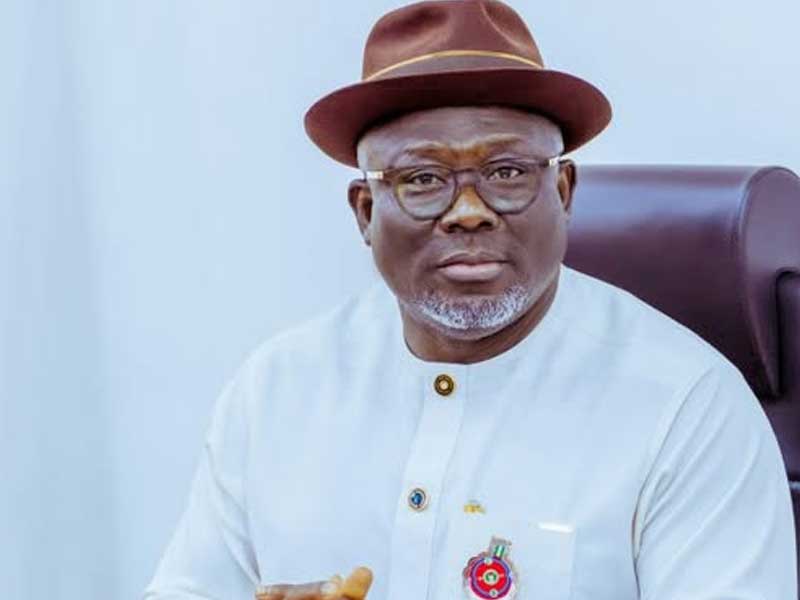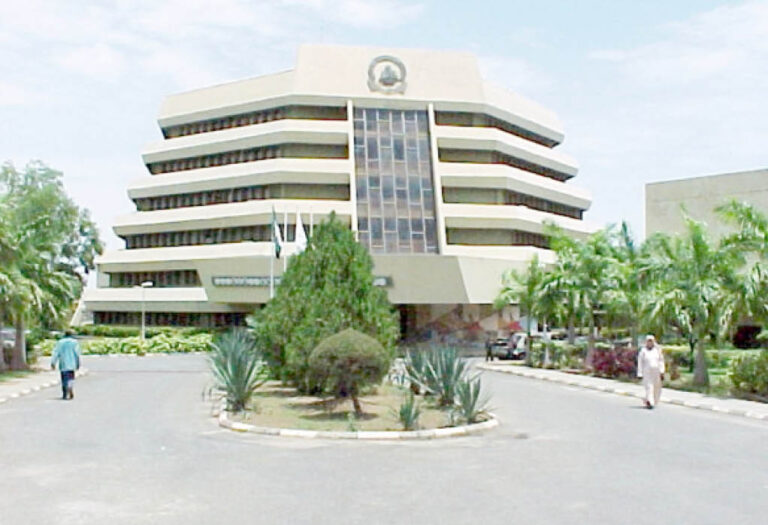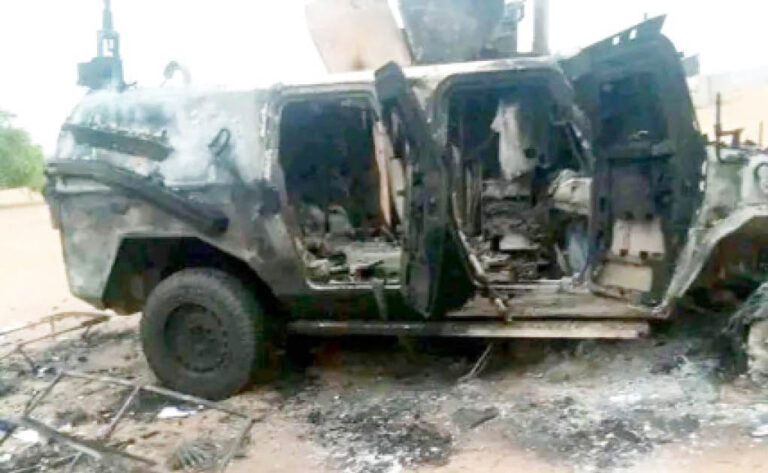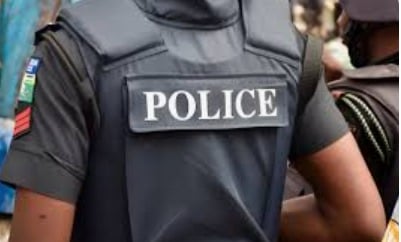
Delta State government is committed to transforming its landscape for the common good, reckons JOHNMARK ODUMODU
Something remarkably exciting is happening in Nigeria’s oil-rich Delta State. A quiet revolution is unfolding, one that has left naysayers dumbfounded and citizens beaming with pride. Governor Sheriff Oborevwori, once dismissed by critics as an unlikely leader, is rewriting the narrative of governance with a cascade of transformative projects that are reshaping the state’s landscape. His administration’s recently approved ₦230 billion infrastructure package, headlined by two ambitious flyovers, is a testament to his unrelenting drive to deliver on his M.O.R.E Agenda—Meaningful Development, Opportunities for All, Realistic Reforms, and Enhanced Peace and Security.
Absolutely far from the timid figure some painted him to be, Governor Oborevwori is proving to be a master of pragmatic leadership, turning Delta into a sprawling canvas of progress where every stroke of development tells a story of vision, resilience, and hope.
When Governor Oborevwori assumed office on May 29, 2023, skepticism hung heavy in the air. Detractors, armed with their soothsayers and negative energy, predicted failure, claiming he lacked the gravitas to steer Delta’s complex socio-political and economic terrain. Yet, two years later, let’s repeat that for emphasis and the avoidance of doubt, just two years after being sworn into office, the man they wrote off is silencing critics not with words but with concrete, steel, and asphalt. The ₦230 billion project portfolio, approved by the Delta State Executive Council on Tuesday, July 22, 2025, is a bold declaration of intent. It spans critical sectors—roads, flyovers, flood control, healthcare, education, and energy—each project meticulously aligned with the M.O.R.E Agenda’s promise to touch every corner of the state, from the mangrove-lined riverine communities to the bustling urban centers.
At the heart of this infrastructure blitz are two marquee flyovers, designed to unclog the arteries of Delta’s economic hubs. The first, a ₦59.7 billion flyover at Uromi Junction in Agbor, Ika South, is a strategic masterpiece. Commissioner for Works Reuben Izeze described it as a “bold intervention” to curb the junction’s notorious history of fatal accidents, particularly for night travelers en route to Abuja. With two roundabouts and a 30-meter span beam—longer than those used in similar projects in Warri—this flyover, to be executed by construction giant Julius Berger, promises not only safety but also enhanced productivity for Agbor’s agrarian communities. The second flyover, costing ₦39.3 billion, will rise at Otovwodo Junction along the Asaba-Ughelli Highway, easing traffic in a critical corridor connecting Delta’s hinterland to its industrial and port cities. These projects, part of a broader ₦230 billion package, underscore Oborevwori’s commitment to urban mobility and economic vitality.
But the flyovers are just the tip of the iceberg. Oborevwori’s vision, encapsulated in the M.O.R.E Agenda, is a tapestry of legacy projects weaving together Delta’s three senatorial districts—Delta North, Central, and South. In the realm of road infrastructure, the administration has embarked on an audacious mission, with over 513 roads and bridges spanning more than 1,500 kilometers under construction or completed. The Ughelli-Asaba dual carriageway, now 99% complete, stands as a flagship achievement, slashing travel times and boosting commerce across multiple sectors. The Okpanam-Ibusa Bypass in Asaba, already commissioned, has decongested the capital territory, offering residents smoother commutes and a renewed sense of urban pride. In Warri and Effurun, a ₦78 billion contract with Julius Berger for three flyovers, a cloverleaf, and road expansions is transforming the twin cities into a modern metropolis, with completion slated for early 2026.
Beyond roads, Oborevwori’s administration is redefining rural connectivity. The Trans Warri-Ode-Itsekiri Road, with its 18 bridges, and the Ayakoromo Bridge are monumental efforts to knit riverine communities into Delta’s economic fabric. In Warri North, the Ogbudugbudu-Ogbeinbiri Road and internal roads in Kurutie Town are bringing long-neglected areas into the fold. These projects, executed under the newly created Ministry of Riverine Infrastructure, reflect Oborevwori’s insistence that no community be left behind. A fish seller in Ogidigben now reaches markets faster, her catch fresher, while a health worker in Esama, Ughelli South, attends to patients in minutes rather than hours. These are not just roads; they are lifelines, breathing vitality into Delta’s farthest reaches.
The M.O.R.E Agenda’s reach extends far beyond infrastructure. In healthcare, Oborevwori’s administration is making bold strides. The renovation and re-equipment of 150 Primary Health Care Centers and 64 General Hospitals are ensuring that quality medical care is accessible, even in remote areas. Over two million Deltans have enrolled in the state’s health insurance scheme, a lifeline for the vulnerable. The administration’s commitment to maternal and child health is unwavering, with free healthcare for pregnant women and children under five sustained and expanded. In a recent move, Oborevwori approved the procurement of eight dialysis machines and CT scans for hospitals in Warri, Asaba, and Oghara, ensuring cutting-edge diagnostics for critical care.
Education, a cornerstone of the M.O.R.E Agenda, is also witnessing a renaissance. The administration has employed over 3,000 teaching and non-teaching staff to bolster primary education, renovated schools, and provided materials to enhance learning. At Dennis Osadebay University, Anwai-Asaba, and Southern Delta University, Ozoro, infrastructure upgrades are turning these institutions into hubs of academic excellence. The planned world-class stadium in Warri aims to cement Delta’s dominance in sports, following its haul of 111 medals at the National Sports Festival. Meanwhile, bursary payments of ₦674 million to over 30,000 students and ₦3.55 billion in counterpart funding for the 2024 Universal Basic Education Programme underscore Oborevwori’s commitment to nurturing Delta’s human capital.
Social welfare is another pillar of the M.O.R.E Agenda, with programs designed to uplift the most vulnerable. The MORE Grant Scheme has empowered 5,426 petty traders, artisans, and female entrepreneurs, while 6,000 farmers have received agricultural inputs to boost food security. A dedicated widows’ welfare initiative supports 10,000 women with a monthly ₦15,000 stipend and free healthcare, offering dignity to those often overlooked. The D-CARES program, expanded to benefit over 250,000 vulnerable households, and the Women Empowerment Skill Acquisition Programme, which has empowered 311 beneficiaries, including 91 persons with disabilities, reflect a governance model that prioritizes inclusivity.
Oborevwori’s fiscal prudence is as remarkable as his project portfolio. Delta’s Internally Generated Revenue has soared from ₦83 billion in 2023 to ₦158 billion in 2024, with projections of ₦165 billion in 2025—all without raising personal income taxes. This financial wizardry, coupled with a no-debt policy, has earned him accolades as Governor of the Year 2024 by THISDAY, New Telegraph, and Vanguard newspapers. His administration’s ₦630 billion capital budget for 2025, with 60% dedicated to capital expenditure, signals a sustained commitment to transformative projects.
Critics, once vocal, are now grappling with the undeniable reality of Oborevwori’s achievements. From the Ultra-Modern High Court Complex, inaugurated by former President Goodluck Jonathan, to flood control projects like the ₦15.3 billion initiative from Orikeze Avenue to Orogodo River, Oborevwori is answering detractors with action. His peace-building efforts, notably resolving the Aladja-Ogbe-Ijoh land dispute, have made Delta one of Nigeria’s safest states, fostering an environment where development can thrive.
As Delta State strides into the second half of 2025, Oborevwori’s M.O.R.E Agenda is becoming not just a slogan but a lived reality. The state has become a sprawling construction site, with bulldozers humming and communities buzzing with anticipation. From the flyovers soaring above Agbor and Ughelli to the jetties dotting riverine landscapes, Oborevwori is building a Delta that is connected, prosperous, and inclusive. The man once written off is now writing a legacy in concrete and compassion, dazing Deltans with a vision that promises to resonate for generations. Oh no, Sheriff Oborevwori is not just governing—he’s transforming Delta, one project at a time.
Odumodu, an architect and good governance advocate, writes from Asaba, Delta State
THISDAYLIVE.




